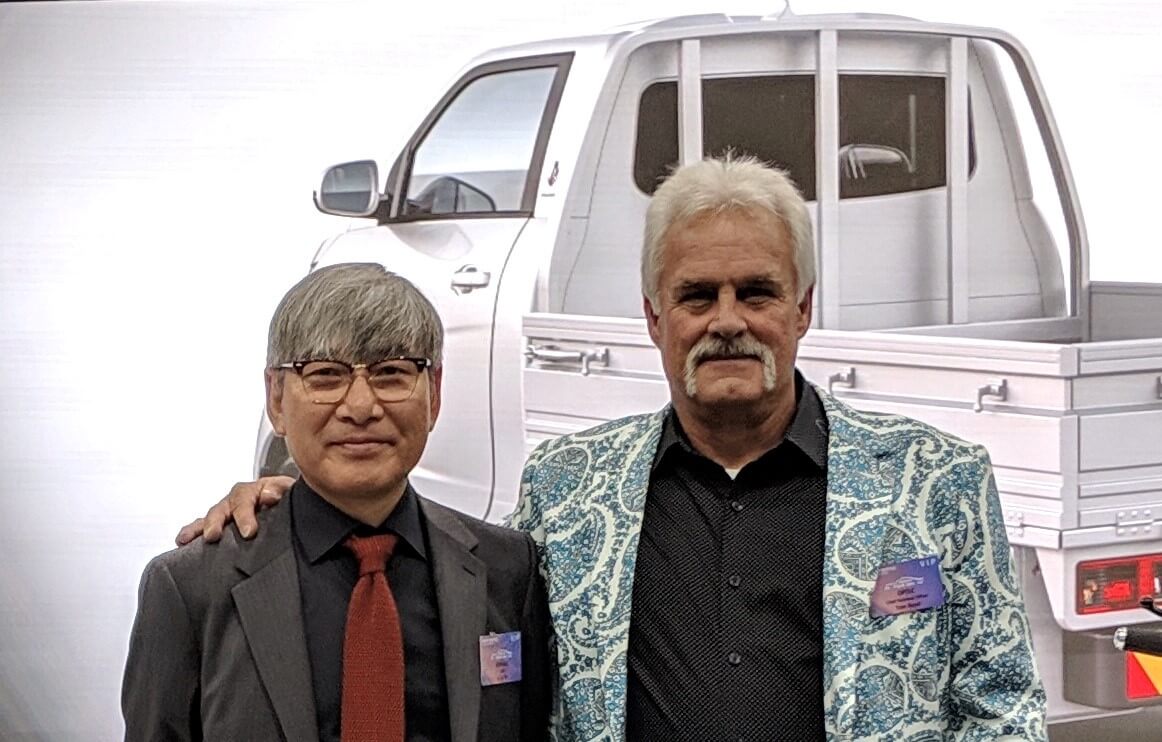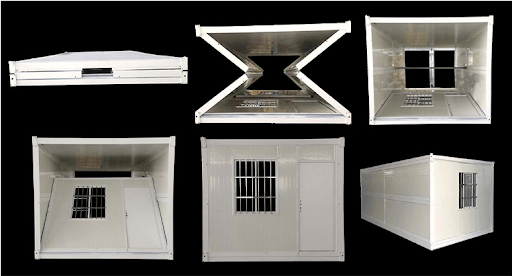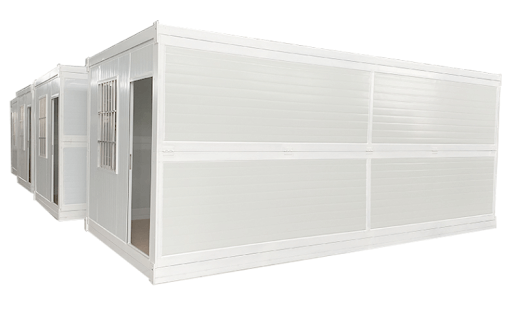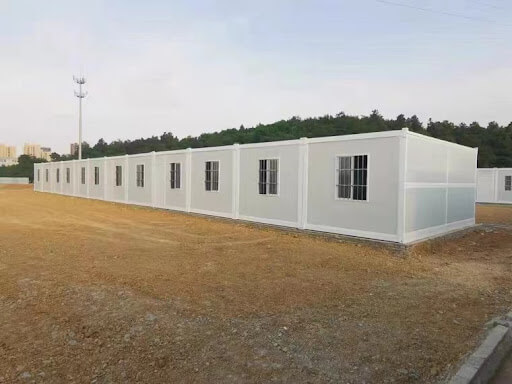G-SONGUO: Improving Life with Technology
An exclusive article from the Offsite Construction Network
The need for affordable housing has never been greater, and a company called G-SONGUO is redefining construction with a worldwide modular housing initiative. Their innovative process and extensive automation are creating affordable housing in developing countries around the world. G-SONGUO’s goal is to be ready to meet increased demand with structures that are comfortable, energy efficient, and cost effective. Above all, their structures go up FAST, with uniform modular components created in controlled factory conditions.
Idleness Leads to Innovation
G-SONGUO is one of two main divisions of the parent company Songuo. Automotive manufacturer Neuwai Motors is the primary division, founded on the concept of building affordable vehicles in a different way. Neuwai Motors provides “kits” which allow vehicles to be assembled after shipment. During the COVID-19 lockdown, production of these vehicles stopped and the factory was idle.
Songuo CEO and inventor Tim Shin saw this as an opportunity to address a worldwide problem. He realized that the construction industry is one of the last to embrace automation, and understood that there was a much greater need for affordable housing than affordable automobiles. Shin used the down-time in the automotive factory to focus on developing and patenting a new way of automation for the building industry.
Thomas Boyd is the Director of North American Operations for G-SONGUO, and he has done extensive research into modular construction methods. “While looking at factories in America that are implementing automated modular building, two key points rose to the top,” he said. “First are the different paths that were being taken, automating the process of conventional stick framing vs steel construction. The second key point is how many company leaders noted that the building industry was the last to automate, and that we need to be more like the car building industry.”

Songuo CEO and inventor Tim Shin with Director of North American Operations Thomas Boyd.
Adapting Proven Methods
Shin applied methods he had used successfully in vehicle body development to the G-SONGUO modular construction process. One of these processes is “hemming,” which is folding the edge of a steel panel to create a stronger, smoother edge. He also applied mass production technology for cost-savings, quality and consistency, and utilized CAE (Computer Aided Engineering) and SE (Simultaneous Engineering).
Shin understood that the more automated the process became, the more affordable it would be to the end consumer. Using robotic lines and uniform materials like steel and urethane insulating foam, he developed a unique system to create foam-cored steel panels, or SIPs (structural insulated panels).
While SIPs have been around for a while, they have never been made like this! The highly automated process addresses labor shortages and the ever-growing need for affordable housing options.
Just like the Neuwai Motors “kits,” the G-SONGUO buildings are shipped to the construction destination and assembled on-site. The panels from G-SONGUO can be used for the entire structure; exterior, interior, floor, ceiling and roof.
Software Engineered Technology
G-SONGUO can implement almost all building plans with five different types of standard wall panels and their custom prefabricated frames. Panels and frames are designed in 3D with Catia software, which can analyze structural performance and vulnerabilities through computer simulation. Each wall panel and frame of the completed 3D model is converted into production data and input to a Programmable Logic Controller (PLC) system at the automated production facilities.
Easy Assembly
The G-SONGUO system is so easy to assemble that construction workers can learn the entire process through Zoom and video conferencing. This was proven during the COVID lockdown, when workers in Pakistan were able to construct a 2-story 1,600 sq. ft. model house in seven days with no hands-on instruction.
One of the most innovative products G-SONGUO has designed is the “foldable accommodation unit,” which is a complete module (floor, walls, ceiling, window and door). The module folds in on itself for flat transport, and can be assembled by three workers in 15 minutes.
The foldable accommodation system was recently used to construct a COVID-19 quarantine facility in China. The units were placed on a prepared concrete foundation. Using the foldable system, they were able to construct 400 houses in six days with two cranes and only 12 workers. This was a remarkable achievement.
“Assembling those 400 houses in seven days was amazing,” said Boyd. “Doing it with that few people is even crazier. Normally in China or developing countries they would throw 200 workers on it just to get it done fast. The ease of using prefab and SIP panels will change the world.”

One of the most innovative products G-SONGUO has designed is the “foldable accommodation unit,” which is a complete module (floor, walls, ceiling, window and door).


The finished units can be combined to create rows of housing, allowing for the efficient use of available space.
Helping Underdeveloped Countries Help Themselves
Songuo has a distribution network in 64 different countries. One of the main initiatives of G-SONGUO is partnering with local governments to build factories to supply regional areas. This will give developing communities the ability to localize labor and materials, providing both employment and affordable housing.
G-SONGUO has projects in several developing countries. They are part of a 5-million-unit affordable housing project currently underway in Pakistan. They are also involved in a regional government project in the Philippines to provide 100,000 affordable homes, and they are working with the Nicaraguan government on a 5,400-unit affordable housing project in Managua. They have also completed projects in Ecuador, South Korea, and Cameroon.
North American Facility in the Works
The G-SONGUO factory is currently located in China, but they are planning a new factory in the United States that will focus primarily on SIP panel fabrication.
Slated for building in 2023, the facility will be located in Birmingham, Alabama. G-SONGUO chose Birmingham because modular precision building (using steel as the primary component) has major roots in the area. From the new location they will be able to reduce logistics challenges and customs duty as well as service both North and Central America.
G-SONGUO is presently looking for Partners to work with in the US to determine the size and eventual output of their North American facilities. If you are interested in learning more about this opportunity, you can contact them at www.gsonguo.com or using the information below.
Contact
North America
Thomas Boyd
tboyd@gsonguo.com
Outside North America
elaine.kwon@neuwai.com
About the Author: Margie Schramke is a freelance writer and designer with a background in modular building. She spent three years as a local journalist and seven years as the Marketing Manager of a large modular construction company. You can contact her at margieschramke@gmail.com.
Don't Miss Our Upcoming Events!
Join the leading companies and professionals from across the offsite construction industry at each of this year's Offsite Construction Network events. With summits and expos taking place across North America in 2025, it's never been easier to connect with and learn from offsite construction manufacturers, designers, builders, and suppliers from the United States and Canada.
Subscribe today to get the latest updates on future events from the Offsite Construction Network.



